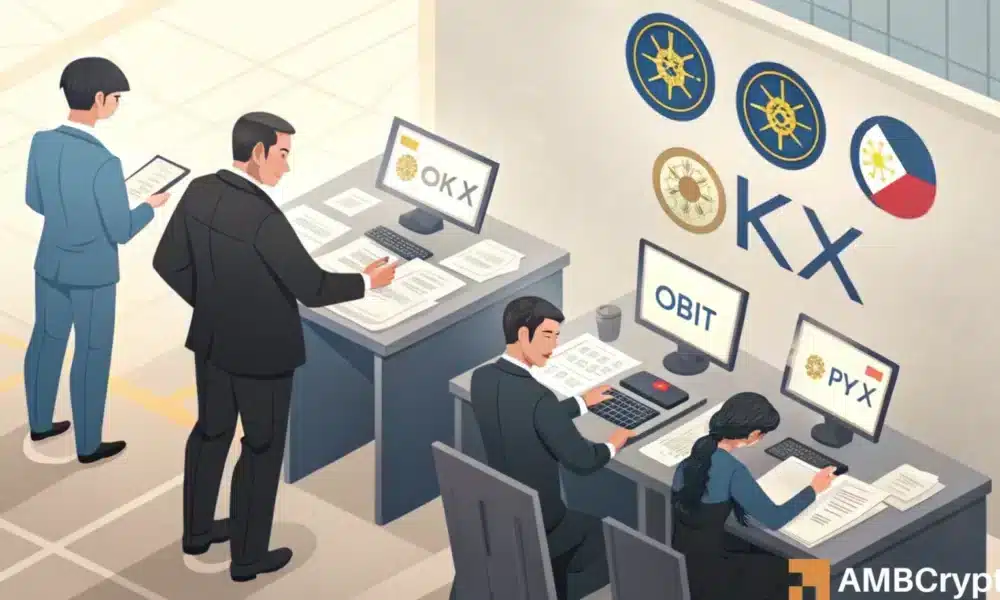Key Takeaways
The Philippine SEC has cracked down on unregistered crypto platforms for servicing and marketing to Filipino users without approval. Legal actions and global tech collaborations are underway to block unauthorized access and protect investors.
The Philippine Securities and Exchange Commission (SEC) has sounded the alarm on ten crypto entities, including major players like OKX, Bybit, and Kraken, for operating in the Philippines without proper authorization from concerned authorities.
In a public advisory issued on 4 August, the regulator cautioned Filipino investors against engaging with these offshore platforms, citing their failure to comply with the newly enforced SEC CASP Rules and Guidelines that took effect on 5 July 2025.
The alert said,
“These platforms have no license, registration, or authorization from the SEC to operate in the Philippines or to solicit investments from the public. Their actions are unauthorized and expose Filipino investors to significant risk.”
Philippines’ SEC flags risks
Several crypto platforms, including MEXC, Bitget, Phemex, CoinEx, BitMart, Poloniex, and others, remain accessible in the country and are actively marketed to local users. Hence, the regulator warned that offering or promoting crypto services, like trading or derivatives, to Filipino users without proper registration breaches securities laws.
While cautioning that the list isn’t exhaustive, the SEC pledged legal action, including cease-and-desist orders and criminal complaints.
The agency is also planning to work with tech giants like Google, Apple, and Meta to block unauthorized promotions.
This collaboration with tech giants happened last year too, when the agency asked Google and Apple to remove Binance’s app from local app stores. At the time, it cited investor protection concerns.
What is the SEC concerned about?
In its latest advisory, the SEC underlined the national security risks tied to these platforms, including potential money laundering and terrorist financing.
It also reiterated its intent to act independently against violators through cease-and-desist orders, criminal complaints, and seeking to block access to websites and apps offering unregistered services.
The agency further reaffirmed its commitment to protecting investors and maintaining market integrity, warning that violations of the Securities Regulation Code (SRC) and the Foreign Corrupt Practices Act (FCPA) may result in serious legal consequences.
And yet, despite these strict warnings and actions, the country isn’t closed off to crypto.
In fact, Philippines is now on track to become a key fintech hub, with digital payments projected to reach $31.68 billion by 2025 with over 65 million digital wallet users.







